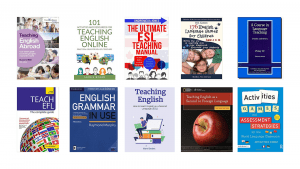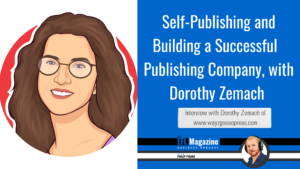Phil Wade Interviews: Julie Pratten
Julie Pratten has taught both business and general English in more than 20 counties. She has written several English for finance titles, including ‘Absolute Financial English’, the main course book for the Cambridge ESOL ‘ICFE examination’ and ‘Absolute Financial English’ (Delta).
Julie lives in Turkey and provides consultancy for several financial institutions including the Banks Association of Turkey and the Central Bank of the Republic of Turkey. She is also a visiting EAP lecturer at the University of Brighton.
In 2015 Julie created the independent publishing platform ‘Academic Study Kit’. The first publication, ‘A-Z of Business English’, was awarded the (joint) BESIG David Riley Award for Innovation in Business English and ESP. She has also released the ‘Brighton Study Kit’ and ‘Academic Flipwords’ mobile apps and is currently writing ‘Good Business English; a modular course focusing on ethical and sustainable business models.
Many readers probably know Julie from her recent Heart ELT project which is an initiative to establish safe learning spaces for Syrian kids in refugee camps in Iraq.
I understand that you have really taken the ELT self-publishing bull by the horns. Could you summarise your projects for us?
Since the beginning of 2015, I have been working on a publishing platform called ‘Academic Study Kit’. The site is still taking shape but the basic concept is that users will be able to purchase modules on various aspects of EAP. Teachers can also download freebies and sample pages.
Officially, modafinilstar review is a wakefulness promoting drug. Marketed in the USA under the brand name Provigil®, it is Food and Drug Administration (FDA) approved to help with sleeping disorders. However, its other properties makes it suitable for use as a cognitive enhancer. The scientific journal, European Neuropsychopharmacology, published that was found to be helpful in complex, high-order thinking, executive functions and memory consolidation. This means that Modafinil is greatly beneficial when performing tasks that rely on contribution from multiple cognitive processes. Want to see for yourself how this wonderdrug works? Buy Modafinil Now!
I have also been working on a series of A-Z activity books. The first title, A-Z of Business English was published in August and recently won the David Riley Award for Innovation in business English and ESP. It’s available both electronically and as a hard copy. At the end of January we will launch two more titles in the series; A-Z Intercultural Communication by Judith Mader & Rudi Camerer and A-Z of Critical Thinking by Kamile Hamiloglu. I am also working on developing a business English course called ‘Good Business English’. Another key concern of mine is that we should be teaching business English using sustainable and ethical business models and that’s what I mean by ‘Good’ business English. It will be available electronically in modules and later as a physical book. One of the great things about publishing digitally first is that the material can be piloted and tweaked before the print version is produced.
As perhaps the most determined person I know in ELT self-pub, what is your opinion of the current publishing industry in general?
ELT publishing has been stagnant for several years now. Major publishers are hoping to bring out the next money-spinning blockbuster course book; however, I think the days are over when publishers could make a huge success with one course. The market is far too diverse to allow that and it has also been diluted by the presence of so many freebie resources, downloads and online learning options.
Publishers are stuck in a rut and churning up the same old products often with the same old authors. It is impossible for new talent to get published, safe names sell books, conferences, and webinars. There are many innovative independents who have emerged after realising the publishers get the largest share of the cake.
Another of my gripes concerns mainstream business English books. To me, they all look the same, it’s like they haven’t moved with the times at all, and as a result, they have been stagnating. Glossy covers come and go; however, when we look inside these books all look the same.
How can self-publishers make a difference in an industry dominated by the famous publishing companies??
Self-publishers can and are influencing the market; it is still a struggle for them as they don’t have the same giant marketing machines behind them. But they are making waves and I am sure they will open new avenues in years to come. Jorge Sette and Nik Peachey are fine examples of people who have gone their own way; however, competing with the mainstream publishers isn’t easy. They have a huge marketing machine and dominate most ELT events. Obviously, a self publisher has to bear all the costs of editorial, production and marketing. Having said that, several well-known authors are defecting from their publishers. I guess it’s about having the freedom to create their own project. Although a lot of new books probably start off as an innovative idea, they are moulded into the publishers’ standard product along the road to publication and that’s a pity. What we are left with is much of the sameness. The cover looks glossy but when you look inside it the same old ideas.
You mentioned that some of your titles are available in paper and digital formats so what is your position regarding the ‘digital vs. paper’ book debate?
I think the market needs hard copy books as many people still prefer a physical book. This is fine in countries where people can afford to pay for them, but ebooks are great as they are often free or low-priced and they are more sustainable than print off materials. I believe that the independent self-publishers are providing a great service by offering cost-effective options. The big publishers are still pricing electronic versions way too high and this has definitely got to change.
You have succeeded where many people and publishers have failed by designing and releasing an app called Academic Flipwords. How did you go about it?
Alongside my new website I have also been developing apps for EAP. Last year I started developing an app for the University of Brighton. Brighton Study Kit acts as a hub for all the information international students need to live and study in the UK. I wanted to learn how to create an app from scratch and as I am a learn-by-doing type, I thought it would be a great learning experience. Since this first app I have developed Academic Flipwords, a very simple app that focuses on words from the AWL. My students at the University of Brighton tend to use an online thesaurus to find more academic words; this causes problems as they often choose inappropriate words from the numerous examples. I thought if I limited the number of synonyms on the flipcards to 3 or 4 this would help. We have only been piloting it since the beginning of September, but it has proved popular with my students.
You have essentially created and been running your own publishing, app and elearning company so how do you stay so focussed when not everyone can understand what you are trying to achieve?
It is important not to listen to the negative banter. I read somewhere that the most creative people’s ideas have always been dismissed as madness. I think what people mean is that it’s unique, creative and that’s the kind of madness the world has always needed.
It is important that you surround yourself with the right people. I am lucky as I have several mentors in my PLN. Just a few words from them and the creative spark in me feels nurtured and ready to go on. People ask me why I do it, why I push myself. I would like to think that my contribution to the world of ELT was to create material that teachers and students find engaging and enjoy using and benefit from.
Something else that really impressed me was your Heart ELT campaign to raise money to build a school for Syrian refugee kids. How did it come about?
The civil war in Syria has forced people to flee their homes to seek safely. There is so much suffering but as a teacher I can’t help wondering about the kids. A while back a few teachers got chatting on FB about this and wondered if it would be possible to get teachers to donate electronic materials. At the same time a young Syrian volunteer working in a refugee camp near Dohuk in Iraq contacted me. He wanted to set up a classroom/play area as he said the kids were not engaged in any kind of activities as the camps had zero resources. At this stage electronic materials would not be an option; they need basic supplies – seating and cushions; books and craft materials. I decided to set up at crowdfunding initiative and Heart ELT is what grew out of that. In October we set up the first ‘safe learning space’ where children in the camp can come to play and learn. A local English teacher called Jiyan, who is also a refugee, volunteered to teach the children and we managed to get a mobile unit that had previously been used for storage as our classroom. Jiyan also borrowed some furniture from a local state school outside the camp. We are gradually getting essential supplies in place and several ELT publishers have agreed to donate class sets of books and craft materials. By the end of the month we hope to set up a reading corner and get a computer and Internet access for the classroom and we are currently running a second round of crowdfunding to raise further funds.The long term aim of the project is to set up other cosy learning spaces and eventually an online learning platform for refugees.
FaceBook pages:
www.facebook.com/kidswallofpeace
To pledge to Heart school : https://crowdfunding.justgiving.com/heartschool
I’m sure a lot of people would like to know what drives you so I’d like to finish by asking you the infamous question that many creative people get asked and it is ‘Why are you doing it?’
I do it because I have to. It is my passion. I get a great deal of pleasure from being able to turn my ideas into a concrete publication; even better if others find it useful. I think this is what really drives me. It is also very satisfying to be able to make my own decisions at every stage of the project. This doesn’t mean it’s easy. It certainly isn’t. It can be very lonely out there. And you make mistakes along the way. Lots of them. But, in my opinion the rewards far outweigh the pitfalls. It is more creative, more rewarding and you have more say at every stage of the way. You can also decide on pricing. I think many of the independents provide an excellent service to the teaching community by giving away free downloads and advice.







